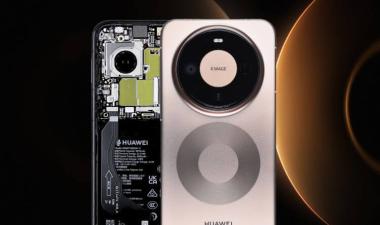Apple iPhone 16 Series: Riding the AI Wave
On September 9, 2024, Apple unveiled its much-anticipated iPhone 16 series, comprising four models: iPhone 16, iPhone 16 Plus, iPhone 16 Pro, and iPhone 16 Pro Max. These latest releases demonstrate Apple's continued push to blend cutting-edge hardware with enhanced AI capabilities, setting the stage for the next generation of smartphones.
The flagship iPhone 16 Pro and iPhone 16 Pro Max models boast significant improvements, particularly in display size and performance. The most striking enhancement is the larger display, offering users more screen real estate for media consumption, gaming, and multitasking. Under the hood, these models are powered by Apple’s most advanced chipset to date, the A18 Pro, delivering faster processing speeds and superior graphics performance. The A18 Pro is designed to handle the increasing demands of AI-driven applications, positioning these models as the pinnacle of smartphone innovation.
The standard iPhone 16 and iPhone 16 Plus retain their previous display sizes but introduce two key features: the Action Button and the new A18 chipset. The Action Button is a versatile control mechanism that can be customized for various functions, enhancing user interaction. Meanwhile, the A18 chipset, while not as powerful as the A18 Pro, marks a significant leap in performance, especially in machine learning and AI capabilities.
All four models come with a new camera control button, making it easier for users to access and manage the camera's advanced functions. This hardware addition complements the software upgrades powered by the A18 and A18 Pro chipsets, allowing for faster image processing, improved low-light performance, and better overall photo and video quality.
A major announcement that accompanied the iPhone 16 series launch is the introduction of Apple Intelligence, an AI-driven assistant set to roll out in October across five English-speaking countries: the US, Canada, the UK, Australia, and South Africa. Apple Intelligence will offer deeper integration with the iPhone’s hardware and software, enabling more intuitive interactions and task automation. The service is expected to expand to additional languages and countries in 2025, signaling Apple’s commitment to making AI a core part of its ecosystem.
Despite the new hardware and software innovations, Apple has managed to maintain pricing levels similar to last year’s iPhone 15 series. However, this strategy could put pressure on the company’s operating profit margins, as the costs associated with the hardware upgrades and the adoption of Apple Intelligence are expected to increase. Maintaining competitive pricing in an environment of rising component costs and AI infrastructure investment presents a challenge for Apple, though it is likely banking on higher sales volumes to offset these concerns.
Analysts expect the iPhone 16 series to outperform its predecessor, with global shipments projected to reach 73 million units in 2024. The iPhone 16 Pro Max is anticipated to lead the lineup in sales, accounting for 35% of total volume, driven by its larger display, powerful A18 Pro chipset, and appeal to high-end users.
The iPhone 16 series represents Apple’s strongest push yet into AI-driven mobile experiences. With the combination of powerful hardware, advanced AI capabilities, and the introduction of Apple Intelligence, the new iPhone models are well-positioned to maintain Apple’s dominance in the smartphone market. As the AI landscape continues to evolve, the iPhone 16 series sets a high bar for what consumers can expect from their devices in terms of performance, functionality, and innovation.










